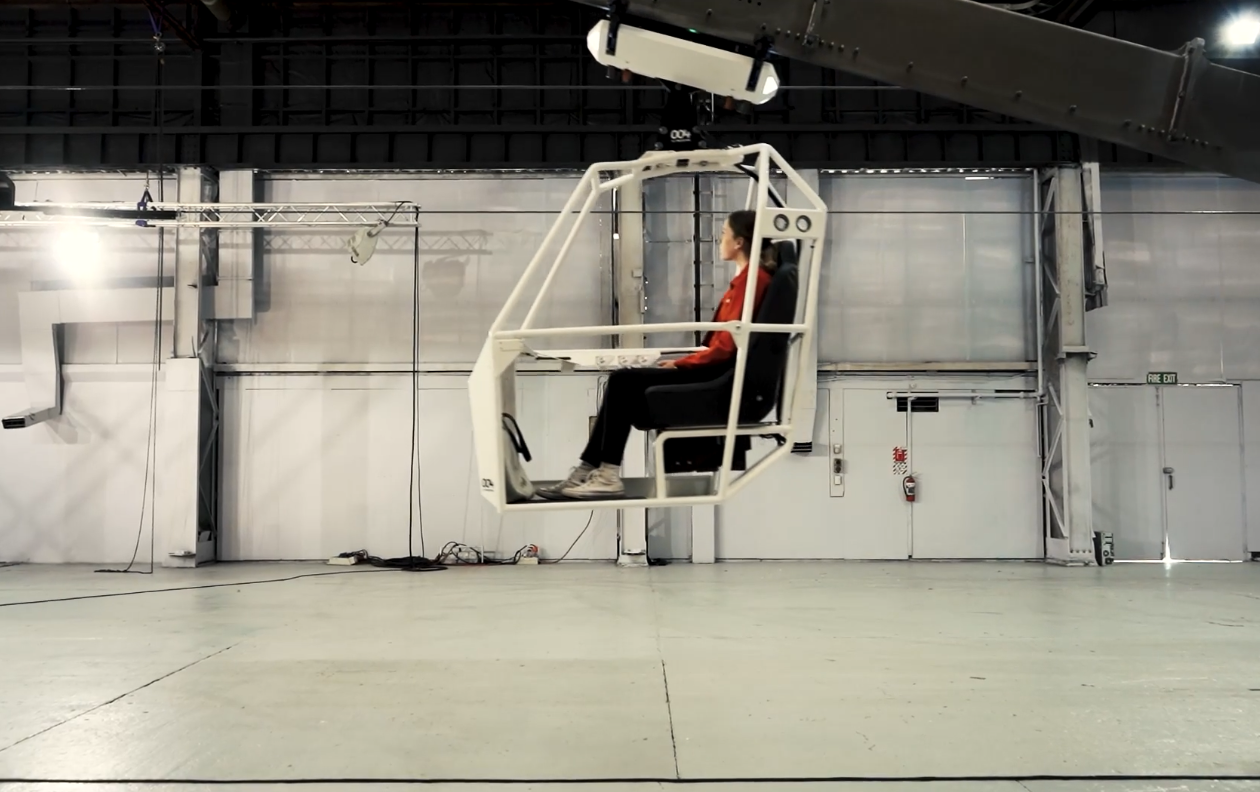TechCrunch is excited to announce Swyft Cities won the TechCrunch Sessions: Mobility 2022 pitch-off and is fast-tracked into the Battlefield 200 at TechCrunch Disrupt in October. Beyond Aero is runner-up.
The Mountain View-based company is committed to improving transportation through the use of autonomous, lightweight, fixed-cable vehicles. The company says that its solution offers a lower cost per mile with fewer carbon emissions than conventional transportation alternatives.
Swyft sees this as a new form of urban mobility that can solve transportation problems in densely developed areas, including corporate campuses, airports, universities and tourism districts.
The platform is novel in that the vehicles move on a stationary cable, allowing for new connections that can be added when needed. This adds capacity into an area, allowing higher density and more profitable developments. It also reduces costs on parking and traffic mitigation. In some areas, providing connections within the site can drive high value.
Beyond Aero, based out of Paris/Toulouse, France, is building long-range aircraft powered by hydrogen-electric propulsion. The first aircraft is a zero emission private aircraft (6-9 seat), designed for hydrogen propulsion, flying 1,000 miles in range.
Why Swyft was the top choice

Image Credits: Swyft Cities
The judges for the pitch-off – Yoon Choi (Muirwoods Ventures), Mar Hershenson (Pear VC) and Gabriel Scheer (Elemental Excelerator) on day one; and Sven Strohband (Khosla Ventures), Victoria Beasley (Prelude Ventures) and John Du (GM Ventures) on day two – largely thought Swyft Cities had a good direction and a very capable team. The judges said Swyft is approaching a growing problem with a novel solution and a competent go-to-market strategy.
Swyft Cities was founded in 2019 by some of the Google alums who were behind transportation and real estate programs at Google’s campuses. They were tasked with investigating new forms of mobility that could help achieve what the startup now calls “district-scale transportation” in a way that both reduced car usage and created a better campus environment. The team, which included Swyft founder and CEO Jeral Poskey, reviewed ideas like underground tunnels and autonomous shuttles, but found that most infrastructure solutions existing today are built for long distance commutes, not short distance movement in dense environments.
“As you look to densify things, you have a lot of congestion and difficulty moving around, and this applies to a lot of universities, airports and other places within a one to five mile scale,” Poskey told TechCrunch, noting that it’s these closed campus environments that Swyft is targeting first. “Given the growth that we were looking at and all the market opportunities around the world, we took a chance, started a R&D project to see what we could come up with, and what we came up with was Swyft.”
Since its founding, Swyft has set up a R&D center in Christchurch, New Zealand, come up with a minimum viable product and secured its first customer agreement. The startup is now working with Remarkables Park in Queenstown, a large office, retail and residential space, to develop a network of autonomous gondolas. Swyft is aiming to have the first vehicles up and running by around August 2024, according to Poskey.
“[The team at Remarkables Park] have a first small leg that connects a few buildings and a carpark, and the goal is to test it out and prove it,” said Poskey. “They then have subsequent phases that will see this growing bigger and bigger, eventually expanding beyond their property until it becomes a public transit system that can go on top of or supplement what’s currently a difficult public transit environment down there, and really feed people from these dispersed areas on the edge of town into the bus system that can bring people into the core part of town.”
This model is how Swyft sees itself scaling in other environments and cities, as well. By starting small, it’s easy to expand, says Poskey, who explained that the Swyft system doesn’t have an endpoint like a train or even a traditional gondola system, but rather operates on a network that can grow outward from any node, thus adding additional value. So while those connections might begin in smaller environments, as they grow outwards, they’ll be able to connect to other forms of public transit more easily.
From a price perspective, these gondolas cost dramatically less than other public transit alternatives, like expanding roads and building more parking, according to Poskey.
“We hit the price point and the value proposition to say this is cheaper than building parking and you get a better campus experience out of it,” said Poskey. “You get a better property that’s more valuable, and you spent less money to make that happen.”
Swyft’s target cost point is $10 million per mile or less for the infrastructure, which Poskey says allows for the private sector to build it themselves rather than wait for government funding.
“That was the real trigger to say this is bigger than just something Google’s should develop on its own campuses,” said Poskey. “This is something that has a huge potential, is highly sustainable and just needs to be spun out to pursue the broader market on its own.”
This story has been updated with more background information about Swyft Cities.









